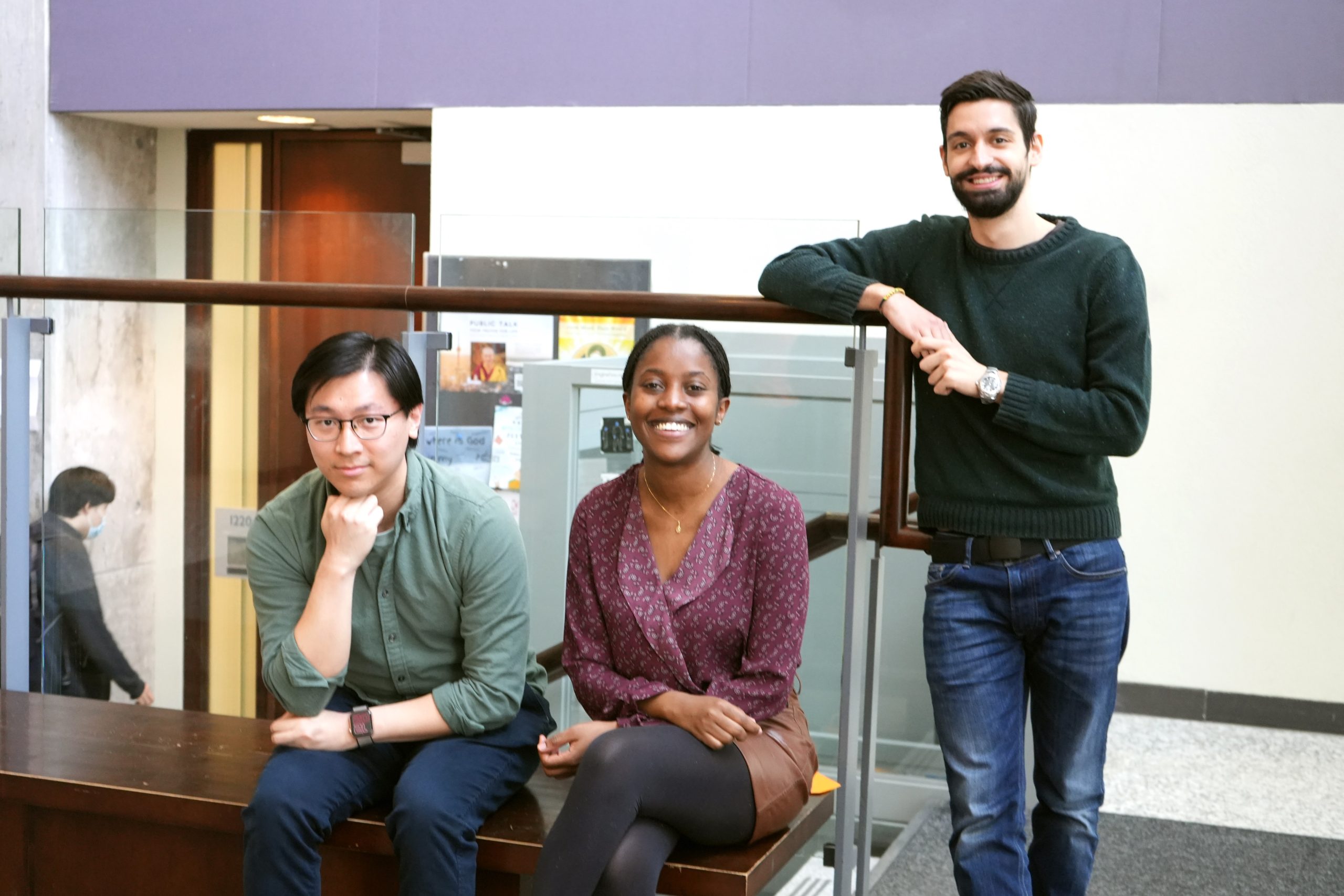“There’s more to technology than just performance,” says ECE PhD candidate Iris Uwizeyimana.
Uwizeyimana has just finished her final project presentation for ‘Special Topics in Computer Hardware Design: Socially Responsible Computing,’ a new graduate course from Professor Natalie Enright Jerger (ECE) that engages students on the societal impacts of computer architecture, hardware and systems. Among other things, the course aims to teach them how to use engineering skills to address urgent challenges in sustainability, security, privacy and equity.
Michail Bachras (ECE PhD candidate) and Jingyang Liu (ECE PhD candidate) says that the course opened their eyes to the ways in which the design of the systems we use have direct and sometimes unintended impacts on other people.
“I hadn’t encountered a course like this before in my academic career,” says Bachras. “We had many discussions about how technology was transforming the world and how we can change things for the better.”
“That’s where the technical aspect comes in, with the socially conscious optimizations we proposed in our final presentations,” says Liu. “Technical solutions provide a concrete framework and are put in a way that engineers — and industry — can understand.”
The curriculum was structured around assigned readings on a theme, followed by lectures and in-class discussions. It was Enright Jerger’s aim to push the students out of their comfort zone, and to make communication of hard truths a key learning objective.
She was encouraged by how positive and productive the discussions were.
“We talked about all the geopolitical considerations that go into the manufacturing of silicon, what materials do we need for those processes, what parts of the world they come from, conflict minerals, supply chain issues, that sort of thing,” she says.
“We talked about bias in machine learning, for example that it historically has not been as effective for detection of Black faces. At some level we want to believe technology is neutral, it’s ones and zeros. But if you train an algorithm on a dataset that has racism baked into it, how can you not expect it to be racist?”

While the curriculum touched on many areas of concern, Enright Jerger also wanted the course to shine a light on technology’s societal benefits, too — something that was conspicuous during the early days of the pandemic, when she was inspired to do something to respond to “a world completely on fire,” as she says.
“Without decades of improvement in computing and networks we would’ve never been able to teach and learn at home. And machine learning is making advances in health care and bringing much needed hope. It’s not all doom and gloom.”
“Positivity is built into the engineering mindset,” says Deepa Kundur, Chair of ECE. “After all, our profession is dedicated to solving problems. Professor Enright Jerger herself is doing just that — by training the next generation of engineers to truly consider the broader consequences of the technology they’ll go on to develop.”
Bachras, Liu and Uwizeyimana all feel, in addition to a new perspective, the course gave them the skills to persuade industry to change in a language it understands: profit and cost trade-offs.
“Industry will always be thinking about these trade-offs,” says Uwizeyimana. “But you can still meet the requirements of industry while caring about carbon, for example.”
“And we need to inform people about the direct consequences of consumption,” says Bachras. “For example, tech materials are from some countries that are very poor. How does that affect them?”
For Enright Jerger, a course of this nature was not about answering all the student’s questions but learning alongside them and, most importantly, giving them the capacity to raise their questions with future employers, to challenge their colleagues to think about these issues.
Her next step will be to introduce similarly themed modules or lectures to current undergraduate courses, such as her second-year digital logic and computer systems, beginning in the fall.
“I really do believe this generation wants to have these conversations,” she says.




